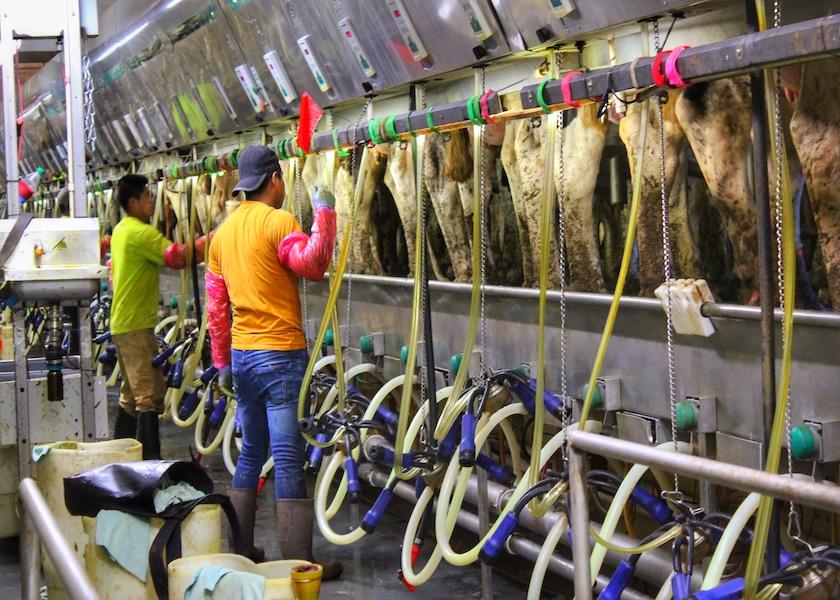Labor Shortage Continues to Plague Farms

Across the nation, labor shortages are causing great concern for a number of industries, including agriculture. In some states, there are fewer job seekers than there are jobs.
“The fear of exposure to Covid-19, lack of childcare, several rounds of government checks, and unusually high unemployment benefits have kept many people out of the workplace,” says Sarina Sharp, analyst with the Daily Dairy Report.
While the U.S. economy is well into recovery, employment growth has been uneven across sectors. Many low-wage earners have yet to return to work, and agricultural businesses are competing with manufacturers, warehouses, transport firms, and other sectors for a tight pool of entry-level labor, Sharp notes.
U.S. farms and livestock operations employed 11% fewer workers during one-week periods this past January and April compared to the comparable weeks in 2020, according to USDA’s annual Farm Labor report.
“If these trends hold, U.S. farm employment will drop to the lowest annual average since USDA began keeping track in 1996,” Sharp notes. “While some of the decline in years past can be attributed to improved productivity—U.S. agriculture makes more feed, food, and fiber with fewer people each year—the steep decline in jobs this year is primarily driven by worker shortages.”
To attract employees, ranches, farms, and dairy operations have had to increase wages and sweeten benefit packages. Gross wages alone, which exclude benefits, climbed 7% in April from the prior year for farm workers and 5% for those who work with livestock, including dairy cows.
“Wages continue to be particularly high on the West Coast, where the minimum wage has climbed, and new overtime rules are boosting compensation noticeably,” Sharp says.
California is in the process of phasing in overtime payments for farmworkers and a new law in Washington will require that all farm workers working more than 40 hours per week be paid overtime by 2024. Other states, including Colorado, are considering similar laws.
However, labor is not the only cost that has increased. Transportation, feed, and equipment prices have also climbed to negatively impact dairy producers’ bottom lines.
“Shortages of labor and other inputs also increase non-monetary costs by eroding efficiency,” Sharp notes. “When farms have to make do with fewer workers than they need, get by without vital equipment, or wait for trucks to arrive, they sacrifice productivity and, ultimately, revenue.”







